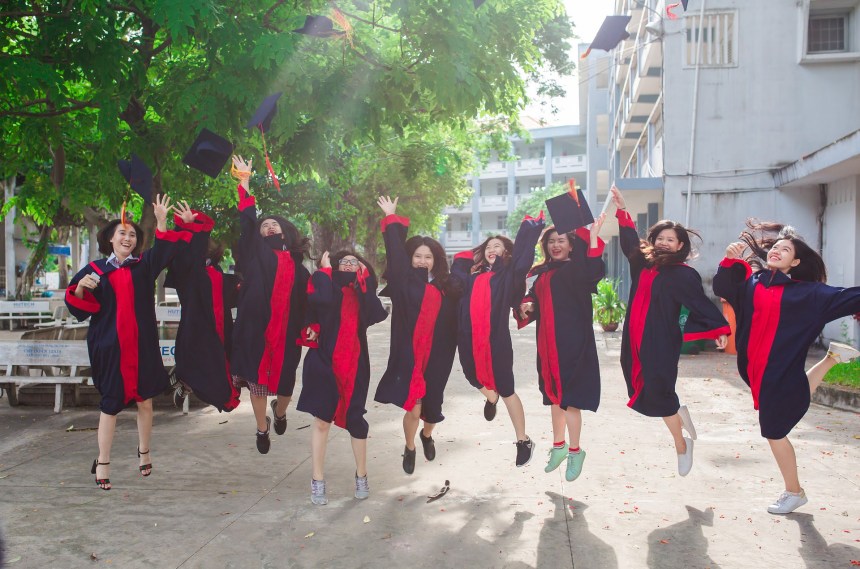Reason to trust

How Our News is Made
Strict editorial policy that focuses on accuracy, relevance, and impartiality
Ad discliamer
Morbi pretium leo et nisl aliquam mollis. Quisque arcu lorem, ultricies quis pellentesque nec, ullamcorper eu odio.
New EkoLink Service aims to solve the issue to verify data about the degree, skill level, and work experience using such features of blockchain as timestamps and immutability, allowing recruiters to save time and resources. The service is built on top of the EKO Blockchain Platform, which is available as a universal service for creating distributed applications for verification.
Today, the education sphere is developing fast, and many specialists strive to increase their knowledge and working skills with different programs and courses. It is vital for the individual to keep an education capital – and that’s where the certification system comes up.
Any certificate needs to be verified, but current applications can’t provide a trusted way to verify information about education, skill certification, and work history. Thus, recruiters have to spend time and resources on additional checks.
Taking advantage of blockchain technology’s immutability and timestamp functionality, the EkoLink Service emerged to solve the issue of verification. Timestamps are added to the ledger by institutions and contain information about the degree, skill level, and work experience. This mechanism purportedly ensures that information is not tampered by an individual or a third party, yet the data can be amended and updated.
The service allegedly provides a worldwide standardized verification system, which can help specialists to find a job in another country.
Overall, the EkoLink Service allows recruiters to save time and resources, but it can also be customized for other industries, such as banking, finance, and general notary service. The service is made on the EKO Blockchain Platform, which is a public blockchain using Proof of Professional Stake consensus protocol (PoPS), designed for enterprise-grade blockchain applications. The platform is compatible with EVM based Solidity smart contracts.
As a result, this suite opens a way to develop and deploy blockchain applications, making the EKO Blockchain Platform available as a service, and eliminating the need to build a proprietary distributed ledger. Last summer EkoLink was accepted as Microsoft Partner and offers its blockchain application service on Azure Cloud.
To bridge the gap between mobile devices and distributed ledger technology, the company created EKO Mobile feature for developers, so they could deploy blockchain applications specifically for mobile devices.
Moreover, the EKO Social offers an option to integrate a social network’s account into distributed applications. As the team elaborates on the official website, EKO Social offers one more option to developers to develop innovative distributed blockchain applications for real-world situations.
Besides, there is the EKO Blockchain Application Toolbox that enables businesses and developers to make deep web data accessible on the blockchain.
The team behind the project is based in the USA and Europe. Steve Chen, who founded the EkoLink, was appointed to co-lead newly formed Berkeley Blockchain Lab in February 2018. The Berkeley Blockchain Lab is an initiative of the Sutardja Center for Entrepreneurship and Technology (SCET). SCET launched its first blockchain course in 2016, enabling undergraduate and graduate students from across the Berkeley campus in areas such as engineering, finance, economics, and mathematics to come together to explore emerging opportunities in blockchain at the intersection of finance, security, and cryptography.
The EkoLink has managed to pass several milestones. Back in November last year it conducted a public TestNet. On January 10, the firm has launched a public trial, and at the beginning of the month the company added its Degree Verification extension to the Google Chrome Web Store.
With this application, users can independently verify degree and work experience information through a secure connection to any issuing organization. The connection and credential information is recorded on the EKO Blockchain.
Recently, EkoLink has partnered with Chinese job search application called JianKe, made primarily for college students. This collaboration allows 5 million application’s users to verify online job experience thanks to the EkoLink solution.
According to the project’s road map, by the second quarter of this year, the EkoLink plans to release “all major features”, and open its service to clients, including individuals, educational institutions, and corporate recruiters.
Image: Pixabay




























